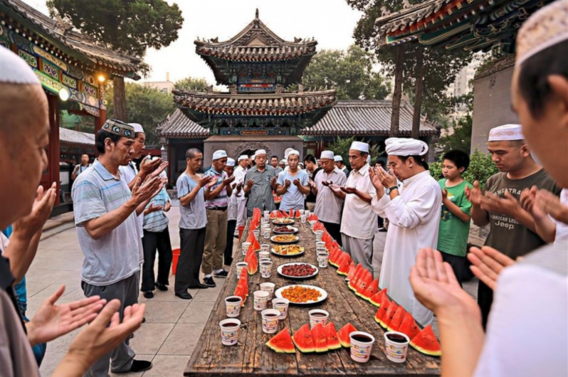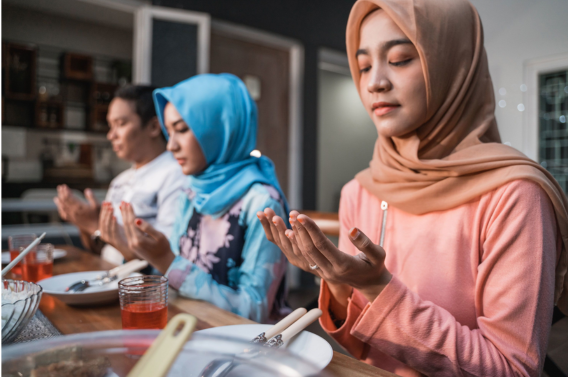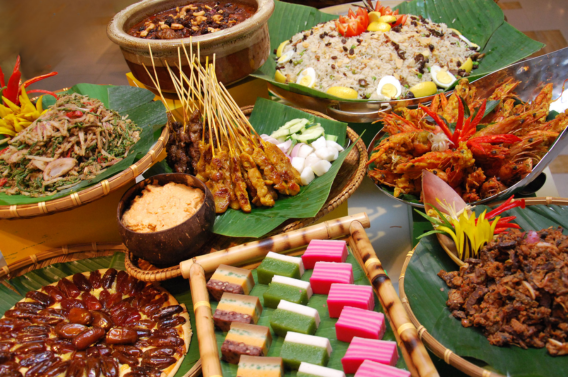In Malaysia, fasting is not just a religious practice but a cultural tradition deeply rooted in the fabric of society.
Fasting holds a significant place in Malaysia, where cultural diversity intertwines with religious traditions. This article explores the multifaceted nature of fasting in Malaysia, examining its cultural, religious, and health aspects.
Fasting transcends religious boundaries in Malaysia, becoming a cultural phenomenon celebrated by people of diverse faiths. Ramadan, observed by Muslims, is perhaps the most prominent fasting period, marked by communal iftars (breaking of fast) and heightened spirituality. Additionally, Chinese New Year fasting, practiced by Malaysian Chinese, involves abstaining from meat and stimulating foods to cleanse the body and spirit. These fasting traditions showcase Malaysia's rich cultural tapestry and the unity found in diversity.

Fasting holds profound religious significance in Malaysia, reflecting the country's diverse religious landscape. For Muslims, Ramadan is a sacred month commemorating the revelation of the Quran, marked by fasting from dawn till dusk, prayer, and acts of charity. Similarly, Buddhists observe fasting during Vesak, reflecting on the teachings of Buddha and practicing mindfulness and restraint. The fasting practices of Hindus during Thaipusam involve rigorous penance, symbolizing devotion and spiritual purification. These diverse religious perspectives underscore fasting's role as a spiritual discipline and a means of drawing closer to the divine.
The tradition of fasting in Malaysia has deep historical roots, dating back to ancient times. Pre-Islamic Malaysians practiced various forms of fasting as part of indigenous rituals and ceremonies, often tied to agricultural cycles and celestial events. With the advent of Islam, fasting during Ramadan became institutionalized, shaping Malaysian society's cultural and social fabric. Over the centuries, fasting practices have evolved, influenced by waves of migration, colonialism, and globalization, yet retaining their core spiritual and communal essence.
Beyond its religious and cultural significance, fasting offers a myriad of health benefits supported by scientific research. Intermittent fasting, characterized by alternating periods of eating and fasting, has been shown to improve metabolic health, enhance cognitive function, and promote longevity. During fasting, the body undergoes physiological changes, such as reduced inflammation, increased autophagy (cellular repair), and improved insulin sensitivity. Additionally, fasting promotes mindful eating habits and may aid in weight management, offering a holistic approach to health and well-being.

While fasting offers numerous benefits, it also presents challenges, particularly in modern Malaysia's fast-paced lifestyle. Balancing fasting obligations with work, school, and social commitments can be demanding, requiring individuals to plan meals strategically and manage their energy levels effectively. Moreover, maintaining adequate hydration and nutrition during fasting periods is essential to prevent dehydration, fatigue, and nutrient deficiencies. To overcome these challenges, Malaysians adapt fasting practices to suit their lifestyles, incorporating innovative strategies and seeking community support to navigate the fasting journey successfully.
Community support plays a crucial role in fostering solidarity and resilience during fasting periods in Malaysia. Families, neighbors, and mosques come together to share meals, exchange greetings, and provide assistance to those in need. The tradition of communal iftars exemplifies the spirit of generosity and hospitality, where people of all backgrounds gather to break bread and strengthen social bonds. Additionally, charitable initiatives, such as food drives and soup kitchens, extend support to marginalized communities, embodying the values of compassion and solidarity inherent in fasting traditions.
Fasting in Malaysia is not just about abstaining from food but also celebrating culinary traditions and festive foods. During Ramadan, markets and bazaars come alive with a dazzling array of delicacies, from traditional Malay dishes like rendang and lemang to Chinese specialties like dim sum and mooncakes. Each community brings its unique flavors and culinary heritage to the table, creating a tapestry of tastes that reflects Malaysia's multicultural identity. Moreover, innovative chefs and home cooks experiment with modern twists on traditional recipes, infusing fasting periods with creativity and culinary flair.

Efforts to promote health and well-being during fasting periods are gaining momentum in Malaysia, driven by government agencies, healthcare professionals, and community organizations. Educational campaigns raise awareness about healthy fasting practices, emphasizing the importance of balanced nutrition, hydration, and physical activity. Healthcare providers offer guidance and support to individuals with chronic conditions, ensuring safe fasting practices tailored to their needs. Furthermore, initiatives such as mobile clinics and telemedicine services enhance access to healthcare during fasting periods, empowering Malaysians to prioritize their health while honoring their religious and cultural traditions.
In Malaysia, fasting is more than just a religious obligation; it is a cultural heritage, a spiritual journey, and a path to holistic well-being. By embracing the art of fasting, Malaysians nourish their bodies, nurture their spirits, and strengthen their bonds with their communities. As Malaysia continues to evolve in a rapidly changing world, fasting remains a timeless tradition that unites people across faiths and cultures, embodying the enduring values of resilience, solidarity, and compassion.